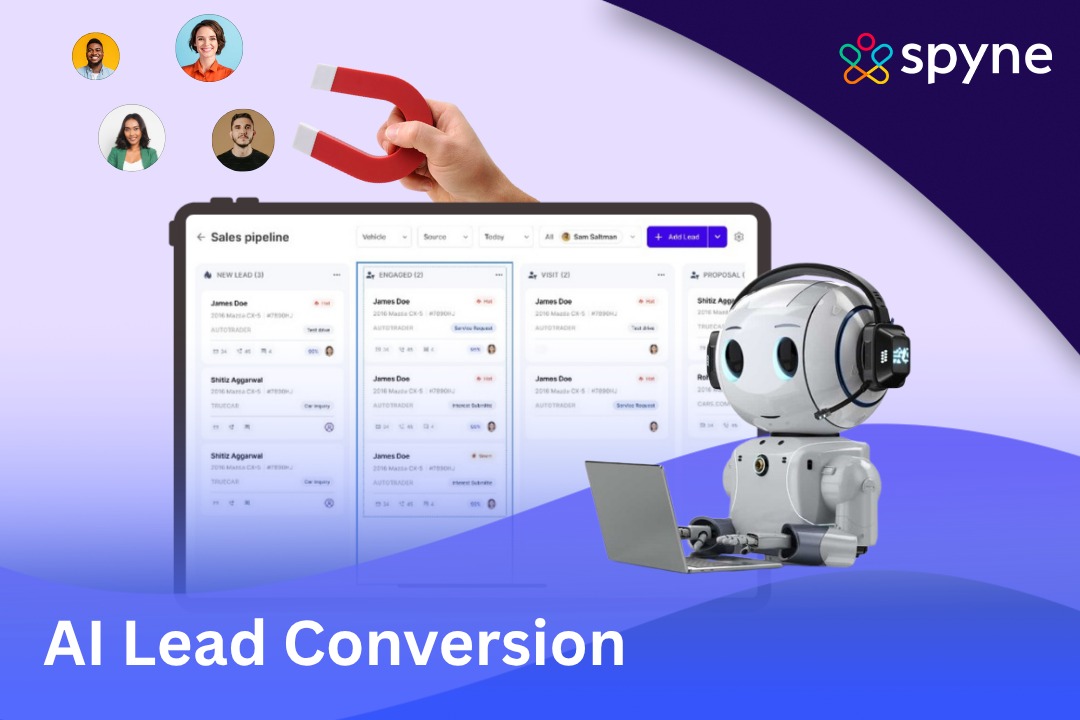Meet Vini AI at NADA Show 2026
%2Fhttps%3A%2F%2Fspyne-static.s3.us-east-1.amazonaws.com%2Fplugin-library%2Fretail-pages%2FheroBG2.png&w=3840&q=90)
Protect & Enhance Your Dealership Trust with
Automotive Reputation Management
Manage and improve your dealership’s online reputation with powerful tools that track reviews, respond to customer feedback, and build trust with potential buyers
%2Fhttps%3A%2F%2Fspyne-static.s3.amazonaws.com%2Fplugin-library%2Fimages%2F773641a4-44f0-4b93-8f90-c5a22ce24a64.webp&w=3840&q=90)
Trusted by teams at over 1,000 of the world's leading organizations
Dealer Reputation Management
Build Your Dealership Reputation That Sell Cars Faster
Turn every customer review into a sales opportunity with our AI-powered reputation management platform—designed to help dealerships boost visibility, build trust, and convert browsers into buyers.
%2Fhttps%3A%2F%2Fspyne-static.s3.us-east-1.amazonaws.com%2Fplugin-library%2Fretail-pages%2FnewsletterBG.png&w=3840&q=75)
%2Fhttps%3A%2F%2Fspyne-static.s3.amazonaws.com%2Fplugin-library%2Fimages%2F6254324e-1f93-473d-ad2c-8120d76a806e.webp&w=1200&q=75)
Dominate Local Search
Get discovered first with optimized Google Business Profiles and local listings.
%2Fhttps%3A%2F%2Fspyne-static.s3.us-east-1.amazonaws.com%2Fplugin-library%2Fretail-pages%2FnewsletterBG.png&w=3840&q=75)
%2Fhttps%3A%2F%2Fspyne-static.s3.amazonaws.com%2Fplugin-library%2Fimages%2F3a9c8ed3-8ca4-4dfb-b0a6-0d332ea7458b.webp&w=1200&q=75)
Monitor Reviews in Real-Time
Track feedback across platforms like Google, Yelp, and Cars.com to protect your brand.
%2Fhttps%3A%2F%2Fspyne-static.s3.us-east-1.amazonaws.com%2Fplugin-library%2Fretail-pages%2FnewsletterBG.png&w=3840&q=75)
%2Fhttps%3A%2F%2Fspyne-static.s3.amazonaws.com%2Fplugin-library%2Fimages%2F3a27f8f1-c8a8-455b-baf7-18737a1b474b.webp&w=1200&q=75)
Track & Improve with AI Insights
Use AI insights to decode sentiment, benchmark competitors, and boost your online reputation.
Car Dealership Reputation Management
Reputation Isn’t Just About Reviews— It’s About Revenue
Discover how Spyne helps dealerships turn online feedback into real-world growth.
/https://spyne-static.s3.us-east-1.amazonaws.com/plugin-library/retail-pages/card2bg.svg)
AI-Powered Response Engine
Reply like a pro at scale. Turn negative feedback into loyalty with smart, human-sounding responses that save your team hours.
/https://spyne-static.s3.us-east-1.amazonaws.com/plugin-library/retail-pages/card2bg.svg)
Sentiment Intelligence Dashboard
Know what’s working (and what’s not). Track trends, customer tone, and key insights to improve service and grow faster.
/https://spyne-static.s3.us-east-1.amazonaws.com/plugin-library/retail-pages/card2bg.svg)
Local Ranking Booster
Own your local market. We optimize your profiles and listings to help you show up first—and stay there.
/https://spyne-static.s3.us-east-1.amazonaws.com/plugin-library/retail-pages/card2bg.svg)
Automated Review Collection
Let your happiest customers promote you. Spyne auto-sends review requests via SMS and email—boosting ratings without lifting a finger.
Dealership Reputation Management
Our Impact in Action
Spyne’s automotive reputation management services help you build a credible and authentic digital profile
20%
Increase in Sales
Due to positive online reputation, businesses experience a significant boost in sales.
30%
Faster Resolution Rate
Immediate responses to user experiences result in quicker problem resolution and customer satisfaction.
25%
Boost in Customer Trust
Enhanced brand reputation fosters greater trust and loyalty, leading to improved customer retention.
What is Automotive Reputation Management?
Automotive reputation management is the process of keeping an eye on, controlling, and enhancing the internet image of auto dealerships and associated companies to foster trust and guarantee a favorable customer perception. When it comes to car dealerships, an effective strategy of automotive management includes managing online interactions with customers, monitoring clients' perceptions, and responding to feedback (both negative and positive). Taking into account all customer feedback, the business is open to improvement in areas that need improvement and is interactive with its customers.
%2Fhttps%3A%2F%2Fspyne-static.s3.us-east-1.amazonaws.com%2Fplugin-library%2Fretail-pages%2FintegrationBG.png&w=3840&q=75)
Effortless Integrations, Maximum Impact
car dealer reputation management
From Reputation to Revenue: How Dealers Win With Spyne Dealership Reputation
See how dealerships are turning reputation into revenue with Spyne.
See how dealerships are turning reputation into revenue with Spyne.
%2Fhttps%3A%2F%2Fspyne-static.s3.us-east-1.amazonaws.com%2Fplugin-library%2Fretail-pages%2FtestimonialImage.png&w=384&q=75)
"I was struggling to keep track of our dealership's online reviews until Spyne's online reputation management solution changed everything. Their platform helped me centralize and monitor all our online feedback effortlessly. Now, I can respond quickly and maintain a stellar online reputation."
Mike Dawson, Sales Director, Crestview Auto Mall
%2Fhttps%3A%2F%2Fspyne-static.s3.us-east-1.amazonaws.com%2Fplugin-library%2Fretail-pages%2FtestimonialImage.png&w=384&q=75)
"Our dealership was losing potential customers due to scattered negative reviews. Spyne's reputation management for automotive transformed our approach completely. We went from reactive to proactive, turning customer feedback into our biggest marketing asset."
Jessica Lane, General Manager, Riverbend Motors
%2Fhttps%3A%2F%2Fspyne-static.s3.us-east-1.amazonaws.com%2Fplugin-library%2Fretail-pages%2FtestimonialImage.png&w=384&q=75)
"With Spyne, our review volume tripled in just 3 months. The automated SMS and email requests made it so easy—and customers actually respond. We've seen a measurable uptick in foot traffic and inquiries."
Brian Cooper, Marketing Manager, Summit Ford
%2Fhttps%3A%2F%2Fspyne-static.s3.us-east-1.amazonaws.com%2Fplugin-library%2Fretail-pages%2FtestimonialImage.png&w=384&q=75)
"The AI-generated responses are spot on. They sound human, address concerns with empathy, and go out instantly. It’s like having a full-time reputation team without the cost."
Emily Rodriguez, Customer Experience Lead, Oakridge Auto Group
%2Fhttps%3A%2F%2Fspyne-static.s3.us-east-1.amazonaws.com%2Fplugin-library%2Fretail-pages%2FtestimonialImage.png&w=384&q=75)
"Spyne’s sentiment dashboard is a game-changer. We finally understand what our customers feel—and where we need to improve. It's directly helped us improve our CSI scores."
Tyler James, Operations Manager, Liberty Chevrolet
%2Fhttps%3A%2F%2Fspyne-static.s3.us-east-1.amazonaws.com%2Fplugin-library%2Fretail-pages%2FnewsletterBG.png&w=3840&q=90)
Auto Dealer Reputation Management
Take Control of Your Reputation Today
Don’t let a single bad review cost you sales. Take control, build trust, and drive more sales with Spyne’s Automotive Reputation Management. Experience industry-leading automotive reputation management services that drive real results.


Automotive Reputation Management FAQs
Got questions? We've got answers.
Find answers to common questions about Spyne and its capabilities.
/d20uiuzezo3er4.cloudfront.net/AI-tools/ai-tool-home/HeaderNew/Spyne+Logo+black.png)
 Image Studio
Image Studio Car Tour
Car Tour Video Tour
Video Tour Vini AI
Vini AI.png)
.png)
.png)
.png)
.png)
.png)













